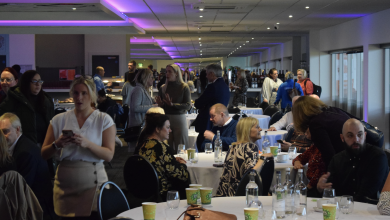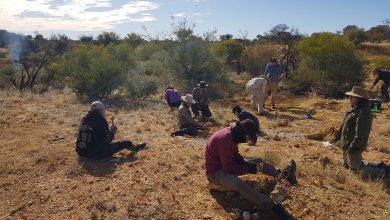
Armed conflict negatively affects the social and economic development of nations around the world. Without peace and stability, countries cannot thrive. That has been proving particularly true in Africa, a continent with a high prevalence of civil wars.
As Africa is exceptionally diverse, religious, cultural, and ethnic differences regularly trigger violent disputes. To promote inter-group cooperation and harmonious coexistence, adequate education focusing on conflict resolution and preserving peace is necessary.
Peace education might be the most effective measure to build and keep peace. It is also an essential modernisation and social reconstruction tool that allows communities to re-establish sustainable living conditions in areas previously ravaged by conflict.
Peace in Africa has to be built through education
In Africa, the hatred beetween members of various ethnic groups, as well as competition over resources and land are amongst the key causes of violent conflicts. As the Association for the Development of Education in Africa (ADEA) observed, ‘Ensuring equitable access to education is key in addressing the root causes of conflict and instability.’
Children who are out of school and grow up knowing nothing but war become vulnerable to exploitation and problems such as child labour or child marriage. Some of them get recruited into terrorist groups, where they face physical and psychological abuse. On top of that, children who were once forced to participate in combat but want to return to their home communities face stigma and rejection.
As Global Partnership reported, ‘Quality education can give children and youth hope and opportunities and heal divisions and traumas of war.’
On the other hand, not receiving any education limits children’s future employment opportunities and makes it highly challenging for them to ever get out of poverty.
Peace education should be part of the school curriculum
In addition to traditional school subjects, aspects of peace education should be commonly taught at educational facilities in Africa. Integrating peace education into a standard curriculum would provide children with the abilities and skills necessary to stand up for themselves in a peaceful way and advocate for social justice within their communities.
By equipping people with knowledge and skills centred around values of nonviolence, human rights, and freedom, peace education seeks to help communities prevent and resolve conflicts. The primary goal of peace education is to make areas where violence is chronic more peaceful.
Thanks to peace education, rural communities learn how to solve conflicts without using force and find out why it is essential to respect other human beings even if they have different opinions.
Peace education creates the grounds for peace and aims to engage and mobilise entire social groups rather than just a few individuals. Achieving peace requires effort from whole communities, and only through joint endeavour can the cycle of violence and suffering be broken.
Promoting peace education in Africa is not easy
Sadly, when wars break out, the education sector is amongst the most affected. Schools are common targets of insurgent groups that either bomb the educational buildings or transform them into military bases. The UN reported that conflict had deprived more than two million children in Africa of education. In 2019, almost ten thousand schools across West and Central Africa were closed or non-operational because of war.
Now these numbers are even higher as the economic slowdown caused by the COVID-19 pandemic has resulted in the intensification of conflicts on the continent. Disputes between ethnic groups in Africa occur more frequently than ever, which underlines the urgency of teaching communities about the importance of peaceful dialogue.
Promoting peace education in Africa is challenging because for many groups living in rural areas brutality is a default response to disagreements. Showing them that there are alternative solutions that do not involve violence requires changing the way they think, which can be a lengthy process.
Africa has the youngest population in the world. Children can one day build a future with no wars, but only if they now receive an adequate education. They have to grow up understanding and respecting values that disapprove of violence. Peace education facilitates that and creates the conditions for people to lead a stable life, free from discrimination and abuse. That is why redefining curriculum in schools across Africa so that it focuses more on peacebuilding is essential.
Author’s bio:
Katarzyna Rybarczyk is a Political Correspondent for Immigration News, a media platform affiliated with Immigration Advice Service. Through her articles, she aims to raise awareness about security threats worldwide and the challenges facing communities living in developing countries.



